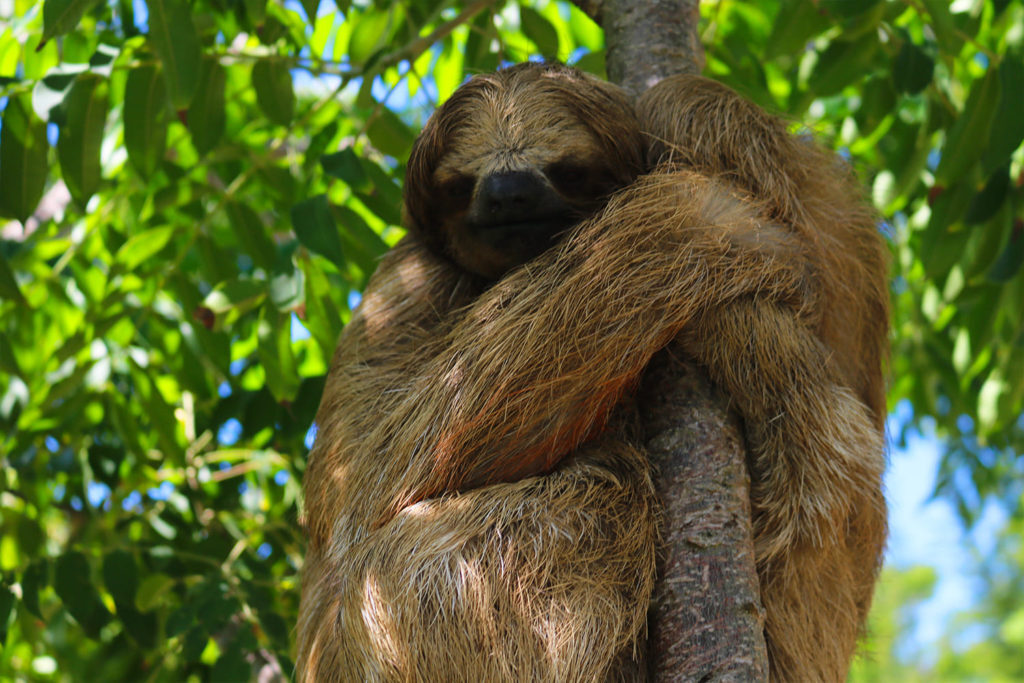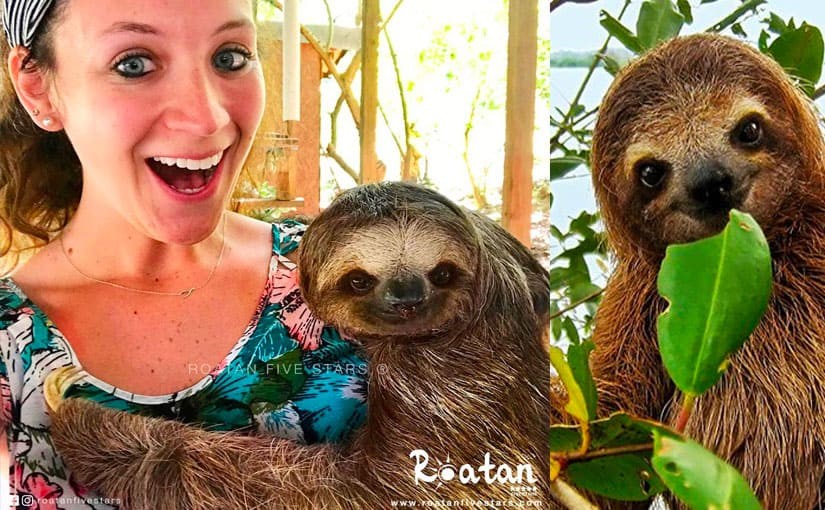Roatan island is just the perfect destination in the Western Caribbean to learn, pet and get a selfie with the sloths, monkeys, and birds. In this article, you will learn more about this incredible animal and some parks you can visit with us to enjoy a natural wildlife experience like never before.
The sloth is so named because of its very low metabolism and deliberate movements, sloth being related to the word slow. This supports their low-energy diet of leaves and avoids detection by predatory hawks and cats that hunt by sight.
Sloths of the present day are arboreal mammals noted for slowness of movement and for spending most of their lives hanging upside down in the trees of the tropical rain forests of South America and Central America. The six species are in two families: two-toed sloths and three-toed sloths.
Sloth Diet
Baby sloths learn what to eat by licking the lips of their mother. All sloths eat the leaves of the cecropia.
Two-toed sloths have a diverse diet of insects, carrion, fruits, leaves and small lizards, ranging over up to 140 hectares. Three-toed sloths, on the other hand, have a limited diet of leaves from only a few trees, and no mammal digests as slowly.
They have made adaptations to arboreal browsing. Leaves, their main food source, provide very little energy or nutrients and do not digest easily, so sloths have large, slow-acting stomachs with multiple compartments in which symbiotic bacteria break down the tough leaves. As much as two-thirds of a well-fed sloth’s body weight consists of the contents of its stomach, and the digestive process can take a month or more to complete.
Three-toed sloths go to the ground to urinate and defecate about once a week, digging a hole and covering it afterward. They go to the same spot each time and are vulnerable to predation while doing so. This behavior may be related to maintaining the ecosystem in the sloths’ fur. Individual sloths tend to spend the bulk of their time feeding on a single “modal” tree; by burying their excreta near the trunk of that tree, they may help nourish it. Recent research shows that moths, which live in the sloth’s fur, lay eggs in the sloth’s feces. When they hatch, the larvae feed on the feces, and when mature fly up onto the sloth above.

Reproduction
Pale- and brown-throated species mate seasonally, while the maned sloth breeds at any time of year. The reproduction of pygmy three-toed sloths is unknown. Litters are of one newborn only, after six months’ gestation for three-toed, and 12 months’ for two-toed. Newborns stay with their mothers for about five months. In some cases, young sloths die from a fall indirectly because the mothers prove unwilling to leave the safety of the trees to retrieve the young. Females normally bear one baby every year, but sometimes sloths’ low level of movement actually keeps females from finding males for longer than one year. Sloths are not particularly sexually dimorphic and several zoos have received sloths of the wrong sex.
The average lifespan of two-toed sloths in the wild is currently unknown due to a lack of full-lifespan studies in a natural environment. Median life expectancy in human care is about 16 years, with one individual at the Smithsonian Institution’s National Zoo reaching an age of 49 years before her death.

Check our shore excursions section: Click Here


